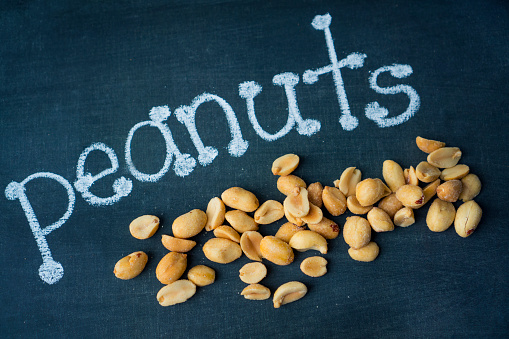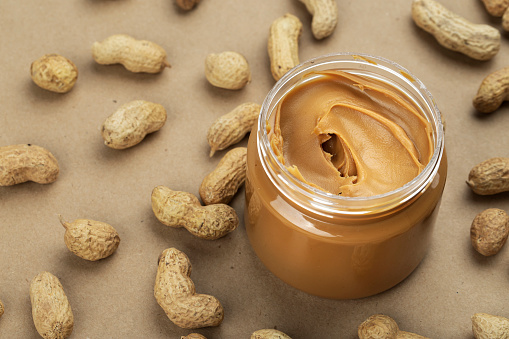Peanuts and Your Family – What You Need to Know!

Most of what we usually hear about peanuts and kids has to do with the risks and dangers of peanut allergies. We don’t hear quite as much about what we, as parents, can do to reduce the risk our children will develop this life-threatening allergy. And we hear even less about the impressive health benefits of peanuts for our family members – including adults – who do not have this allergy.
Getting the facts on peanuts will help you make more informed and better proactive decisions about the role this nutrient-dense food can play in getting and keeping your loved ones nutritionally balanced.
You may be surprised to learn that, despite their name, peanuts are not nuts. They are a legume, as are chickpeas, green peas, black beans, lima beans, black-eyed peas, pinto beans, and soybeans.
While the history of peanuts is still a little murky, they are generally believed to have originated in Brazil or Peru. Since that time, they have become the key ingredient of everything from peanut butter and jelly sandwiches to dipping sauces, salad dressings and stir-fry dishes. Peanuts are basically eaten around the world. And, in the U.S., we eat on average more than seven pounds per capita.

Peanut Allergies!
Unfortunately, peanuts are also one of the most common food allergies. If you have a peanut allergy, your immune system sees peanuts as something harmful to your body and immediately mounts a defense as it would to anything it identifies as a pathogen. Depending on a person’s sensitivity to this food, even a tiny amount can cause a serious reaction including:
- Gastrointestinal problems
- Hives or swelling
- Runny nose
- Tightening of the throat, shortness of breath
- Itching and tingling around the mouth and throat
In the most severe cases, this allergy can trigger anaphylaxis, which is a medical emergency that requires immediate treatment. Some of its symptoms include difficulty breathing, drop in blood pressure, and dizziness.
Prevent Peanut Allergies
Peanuts Can Help You Be Proactive About Good Health
As a nutrient-dense food, peanuts are a good addition to your diet since they are a great source of many key nutrients, many of which help you manage your weight, support heart health and are good for managing your blood sugar.
A serving of 100 grams of raw peanuts gives you:
- Protein – 25.8 grams (about half of what you need in a day)
- Fiber – 8.5 grams (about a quarter of the amount recommended for men; one third of that for women)
- Magnesium – 168 milligrams
- Calcium – 92 milligrams
- Potassium – 705 milligrams
- Iron – 4.58 milligrams
- Phosphorus – 376 milligrams
- Zinc – 3.27 milligrams
- Vitamin E – 8.33 milligrams
- Vitamin B3 – 12.07 milligrams
- Vitamin B1 – 0.64 milligrams
- Vitamin B6 – 0.35 milligrams
- Vitamin B2 – 0.14 milligrams
- Vitamin B9 – 240 micrograms
Peanuts also provide healthy fats which can help you better manage cholesterol levels. Peanuts have a low glycemic index, so eating them does not cause a spike in blood glucose, which is great news for diabetics.
Ways To Incorporate Peanuts In Your Diet
While some studies estimate that almost half of the peanuts consumed in the U.S. are in the form of peanut butter, there are many other ways to incorporate them in your healthy diet. These include:
- A spread for fruits such as apples and bananas (just be careful how much you use!)
- Sweetener, in the form of peanut butter, for your smoothies (also gives additional texture)
- Topping for yogurt or other healthy desserts
- Ingredients in soup (add either the nut or peanut butter depending on the recipe)
- Sauce for your vegetables or lean proteins
- Addition to your morning cereal
- Peanut milk (yes, it is a thing)
While peanuts may not have the cachet of some other “true” nuts, they definitely deserve to be part of your diet planning.
Enjoy your healthy life!
The pH professional health care team includes recognized experts from a variety of health care and related disciplines, including physicians, health care attorneys, nutritionists, nurses, and certified fitness instructors. To learn more about the pH Health Care Team, click here.







